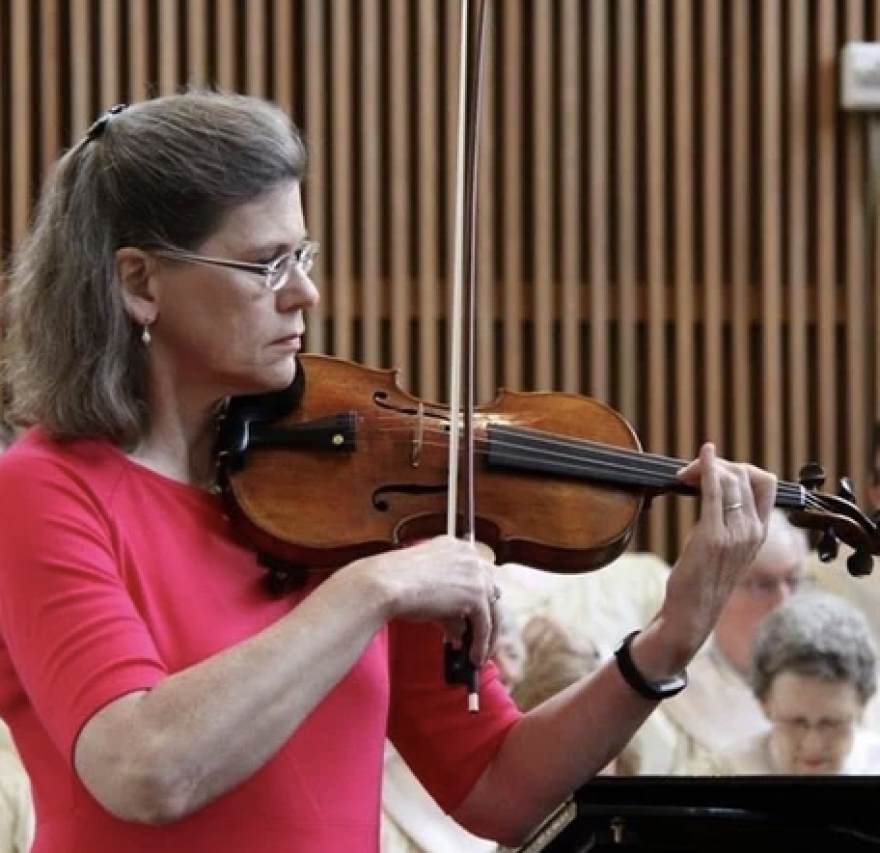Amidst the harrowing dispute over the San Antonio Symphony Members’ pay cuts and reduction, the Musicians of San Antonio Symphony (MOSAS) are forced to search for new sources of income.
What would have been the 82nd season in 2021-2022 fell through because the musicians went on strike. All 72 musicians refused to accept the conditions that the Symphony board members had proposed: the reduction of the ensemble to 42 full-time members with a $24,000 salary, a maximum salary of $11,250 for the remaining part-timers, and 4 cut positions. Since the strike on Sept. 27, the musicians have not received any income as symphony musicians. Therefore, every musician had to find creative ways to make up for their loss of income during the past two seasons.
In the San Antonio Symphony, approximately 90% of the members are music instructors and to combat their income loss they accrued extra students. Laura Scalzo, Violin I, considered one of the newer members, has been playing about 10 years in the orchestra and relies on multiple different income sources after the strike.

“It's definitely tough. I'm doing a little bit more private teaching out of my home studio. I have picked up a little bit more work through some of the Youth Orchestras of San Antonio, by coaching at our local middle and high schools. I've been lucky enough to perform as a substitute with a couple of other orchestras. I have some services scheduled with the Dallas Opera coming up at the end of March and April,” she said.
It also helps, Scalzo added, to be in a two-income household. Not all of the musicians on strike are in the same situation.
Beth Johnson, Violin II of Mosas has played in the San Antonio Symphony since 1994. She won her spot through a rigorous and competitive audition, a process similar to earning any orchestra seat. It was especially difficult as Johnson does not have financial support from family members. Since the pandemic, she plays at the church and oftentimes at festivals.
“I'm really very fortunate in that I'm a staff musician at Christ Episcopal Church, and they are very generous with their pay. Christ Episcopal hired some of the symphony members for events throughout the year. For Christmas lessons and carols, they hire us and then for Easter week and then also around All Saints' Day,” Johnson said.
Beth Girko, a Violin I player for 30 years, originally relocated to San Antonio with her husband for the full-time orchestra job. Though it was a low salary, the benefits and basic wage were what she needed. With the calamity of the pandemic and strike, Girko said she has found it difficult to maintain her bills and mortgage and has even dipped into her savings. It has been especially tough for her living without health insurance and having to pay out-of-pocket.
To make ends meet, Girko contributed to her earnings by teaching and doing wedding gigs. She occasionally travels to play for the Austin Symphony Orchestra, with rehearsals at night to allow time for other jobs during the day.

“And for me, as a 60-year-old person, one of the hardest things about the strike has been that we have lost our health insurance. What the orchestra management is suggesting or trying to impose on us is not a livable wage,” she said.
Many San Antonio Symphony members who are over 60 do not intend to retire because they want to continue playing their instruments. Even if they do, they cannot afford to because of the small pension.

"Different people are in different situations, quite a few people are traveling out of town to work with other orchestras. Many of the rest of us are accepting a week of work here, a week of work there to go play as a substitute musician in other orchestras. We've had several musicians go up on many occasions to sub with the Fort Worth symphony. But people are certainly looking to maximize their teaching," said Mary Ellen Goree, Principal Violin II and Chair of the Negotiating Committee.
Solution-wise, Goree advised the need for an “aggressive and ambitious” fundraising drive to cover operating expenses and musicians’ salaries. In order for the San Antonio Symphony to function, it does not rely on ticket sales alone, but also receives endowment income, private donations and government grants.
“We fall very short on endowment income, which means that an exceptional amount needs to be made up through donations, grants. The people who support us are loyal. The (San Antonio) symphony has not seen fit for a long time to invest in a professional development department the way most professional orchestras have…We also need a sustained, ambitious endowment drive in order to increase the percentage of our revenue that comes from the endowment, which would provide stability,” she said.
The Musicians of San Antonio Symphony will attend their first mediation strike on Feb. 14 with the board. For more information and ways to support, visit the MOSAS website.





